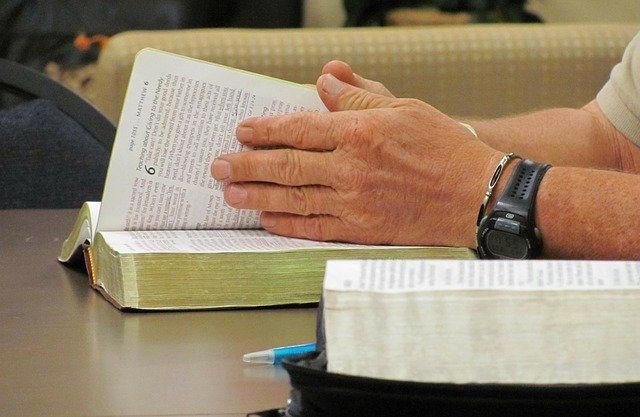Picture a six-year-old boy with tears running down his cheeks, not because of the usual upsets of childhood, but because he is recalling his sins. If you could read his mind, you would see flashes of joy shoot into it, not because of the passing delights of a child, but because he has been thinking about the things of God. This is how the young Thomas Goodwin recorded his early spiritual experience.
In darkness
When as a youth of twelve years he entered Christ’s College, Cambridge, his spiritual feelings intensified. Preparation for the taking of the Lord’s Supper in the college became the focus for earnest preparation of soul. Self-examination, repentance, meditation on the sufferings of Christ, with due application to his own case, and thankful feelings towards God were for periods, at least, his pursuit. He read the Heidelberg Catechism. He listened to the Puritan preachers of his era who seriously and fervently preached the message of the Scriptures.
Goodwin was himself destined by God to be among the foremost Puritan preachers, an acquaintance of Oliver Cromwell, and standing with men such as John Owen. He was to be one of the ablest exponents of the Independents at the Westminster Assembly in the 1640s, and was held in high respect by the Presbyterians. Yet, surprisingly, the devout student knew little of the grace of God in his soul. His tutor William Power had spotted this and one day prevented Goodwin from partaking of the Lord’s Supper.
The youth was devastated and resentful of the rebuff. He dropped his involvement with godly preachers and things puritan and he began to attend an Arminian preacher of extravagant style called Dr Senhouse. He became obsessed with the thought of becoming a popular oratorical preacher. He said that ‘If God would give him his desire and not damn him at last he might keep heaven to himself.’ For seven years Goodwin hardened himself, although not without some moments of deep conviction.
Live!
Yet God was going to close in on the young man. At the age of twenty he came under an intense conviction of his sin as he heard Dr Bainbridge preach on Christ’s tears over Jerusalem. Goodwin knew that he was bound up hand and foot in his sin and under the wrath of God.

Some hours later regeneration and deliverance came to him. God spoke through Ezekiel 16:6: ‘“I said unto you, Live … Yea, live; yea, live, I say,” said God: and as he created the world and the matter of all things by a word, so he created and put a new life and spirit into my soul, and so great an alteration was strange to me … God took me aside, and as it were privately said unto me, “Do you now turn to me, and I will pardon all your sins, though never so many, as I forgave and pardoned my servant Paul, and convert you unto me … ”’ Thomas Goodwin had become a changed man.
From seeking his own glory, he now began to seek the glory of Christ. Yet it was to be a number of years before Goodwin came to a clear understanding of the gospel in all its fullness or experienced a settled assurance of his acceptance with God. There ensued a protracted period of introspection as he concentrated on signs of grace, or otherwise, in himself, rather than looking to Jesus Christ as the ‘head of salvation as Adam had been for sin and condemnation’. He was shown by Mr. Price of King’s Lynn what is the basis of salvation. It is going in faith to Christ alone for justifying righteousness. He became assured of his salvation and a new tenderness came into his preaching, with a new emphasis on Christ’s consoling ministry to believing sinners in their fears and frailty.
A child of light
Perhaps it is this protracted pilgrimage which gave rise to Goodwin’s distinctive and influential doctrine of assurance. This is expounded at length in his sermons on Ephesians 1:13-14, and particularly in his treatment of the meaning of the ‘sealing with the Holy Spirit’. This seal is ‘light that cometh and overpowereth a man’s soul and assureth him that God is his, and he is God’s … It is a light beyond the light of ordinary faith … It is the electing love of God brought home to the soul … It is a new conversion; it will make a man differ from himself in what he was before in that manner almost as conversion doth before he was converted.’ Here Goodwin differed from his great contemporary, John Owen.

Owen said that the seal was the Spirit of Christ, present in the heart of every regenerate believer. Goodwin put the emphasis on the sealing activity rather than the sealing presence of the Spirit. Thus to Goodwin the Holy Spirit was the sealer rather than the seal, and the sealing might well follow some time after conversion. Owen’s doctrine was surely the right one. ‘If any man have not the Spirit of Christ, he is none of his’ (Romans 8:9). It is inconceivable that the Spirit of God could indwell the believer without marking him out as his temple (2 Corinthians 6:16). True believers are never utterly destitute of the seed of God and the life of faith!
Goodwin’s exposition of the seal belongs better to a description of what is meant by the witness of the Spirit within a believer as taught in Romans 8:16: ‘The Spirit itself beareth witness with our spirit, that we are the children of God.’ Goodwin’s extravagant language in describing such assurance as ‘a new conversion’ undervalues the great miracle of regeneration. Nothing can ever match that glorious miracle of spiritual resurrection, in which the Son quickens whom he will from the graveyard of their sins (John 5:21).
Christ alone
It is the primacy of the doctrine of regeneration that Goodwin’s life bears witness to, whether negatively as above or positively in his conversion and ministry. How many supposed ‘Christians’ today have never heard the voice of the Son of God in their soul saying ‘Live!’? They have wept or rejoiced or applied the promises of Scripture to themselves, but they have no peace with God. They have never come to Christ as the sole ground of their righteousness and acceptance with God. Their spiritual binoculars are trained inwards on their depressions or ecstasies but they have not looked to Christ alone. Participation in church activities is now too often seen as the key to eternal life rather than believing on the Lord Jesus Christ. The Word of God is the great instrument of regeneration. Christ is the Word’s great subject, and that includes the subject of the book of Ezekiel! Believers must keep their nerve, and use the spiritual weapons provided by God for the warfare. Then we will see, under the sovereign hand of God, giants like Goodwin and Owen raised up in our land again.

Christ, our sanctification
We learn from Goodwin’s experience that being saved by the gospel of Christ and understanding that gospel clearly are not the same things. It was a considerable number of years before he saw that sanctification is as much the gift of God in Christ as justification is (1 Corinthians 1:30). We would do well to tell many a poor, burdened, earnest believer that their peace is in Christ, rather than in an ever more vigorous attention to the duties of the ‘quiet time’, witnessing, attending meetings or observing the Sermon on the Mount. Goodwin’s early experience with Holy Communion, as much as his later conflicts of soul, should alert us to this point.
Birth-right
Finally, whatever the eccentricities of Goodwin’s exposition of Ephesians 1:13-14, he was clearly right to earmark the importance of that seal. ‘Believers’ whose doubts are settled and resolute do well to ask themselves if they are believers at all! There is a glorious birth-right of every child of God, however insignificant they are. It is to know that he or she is a child of God. ‘He that believeth on the Son of God hath the witness in himself’ (1 John 5:10).







